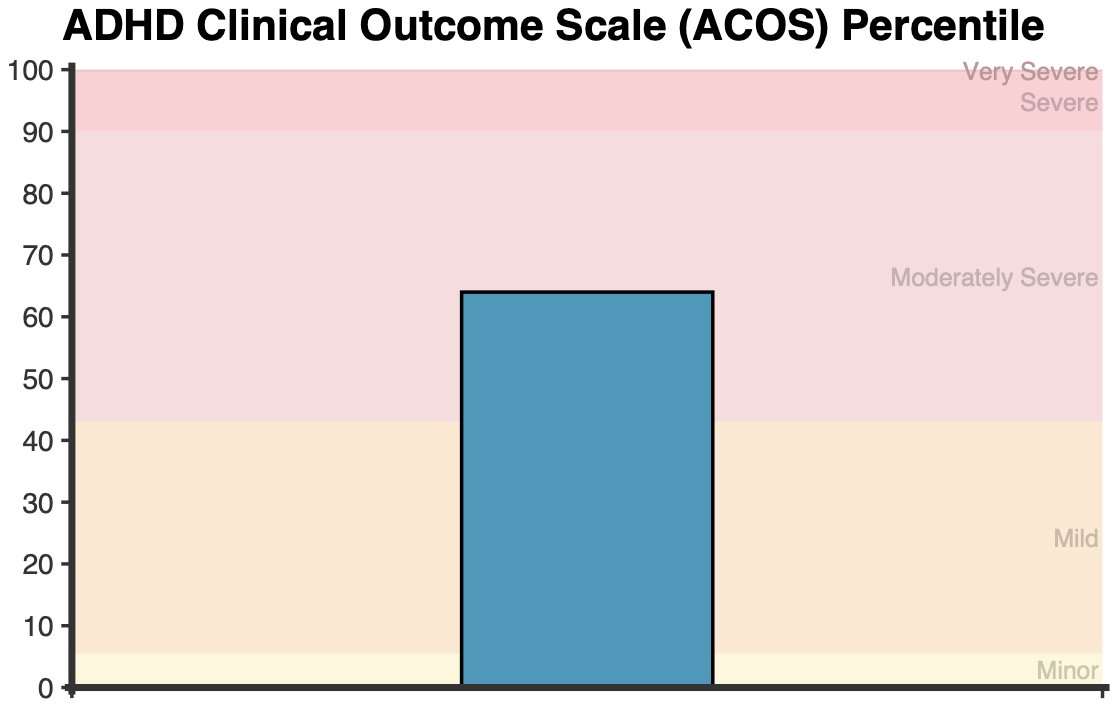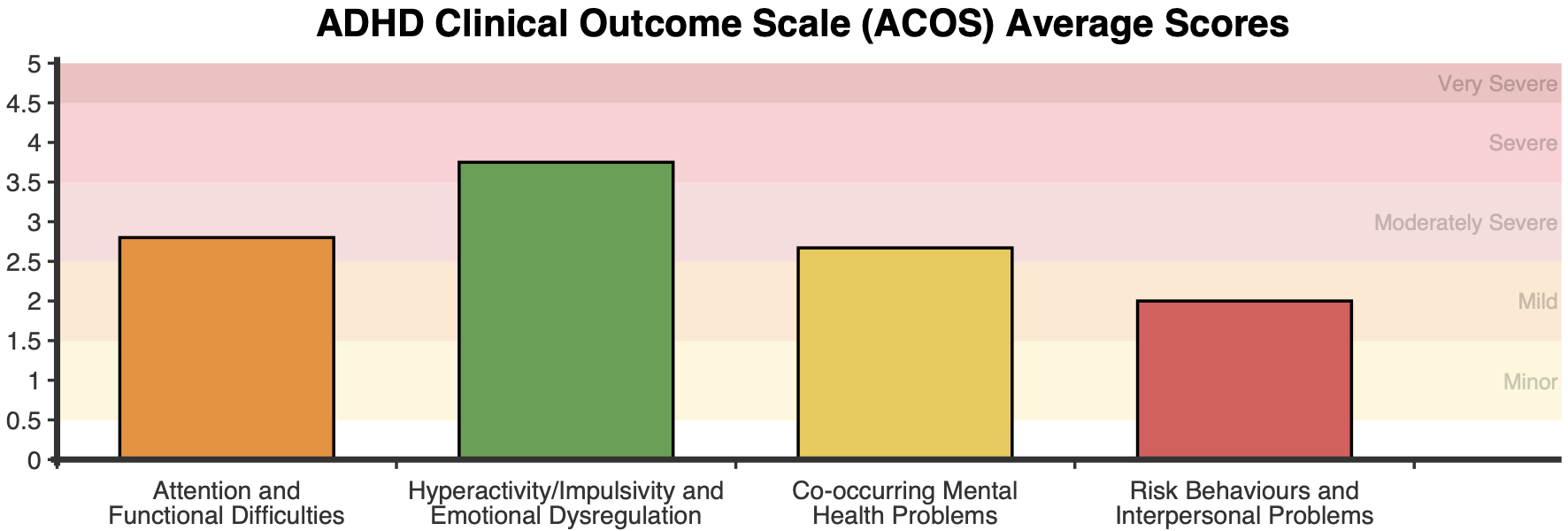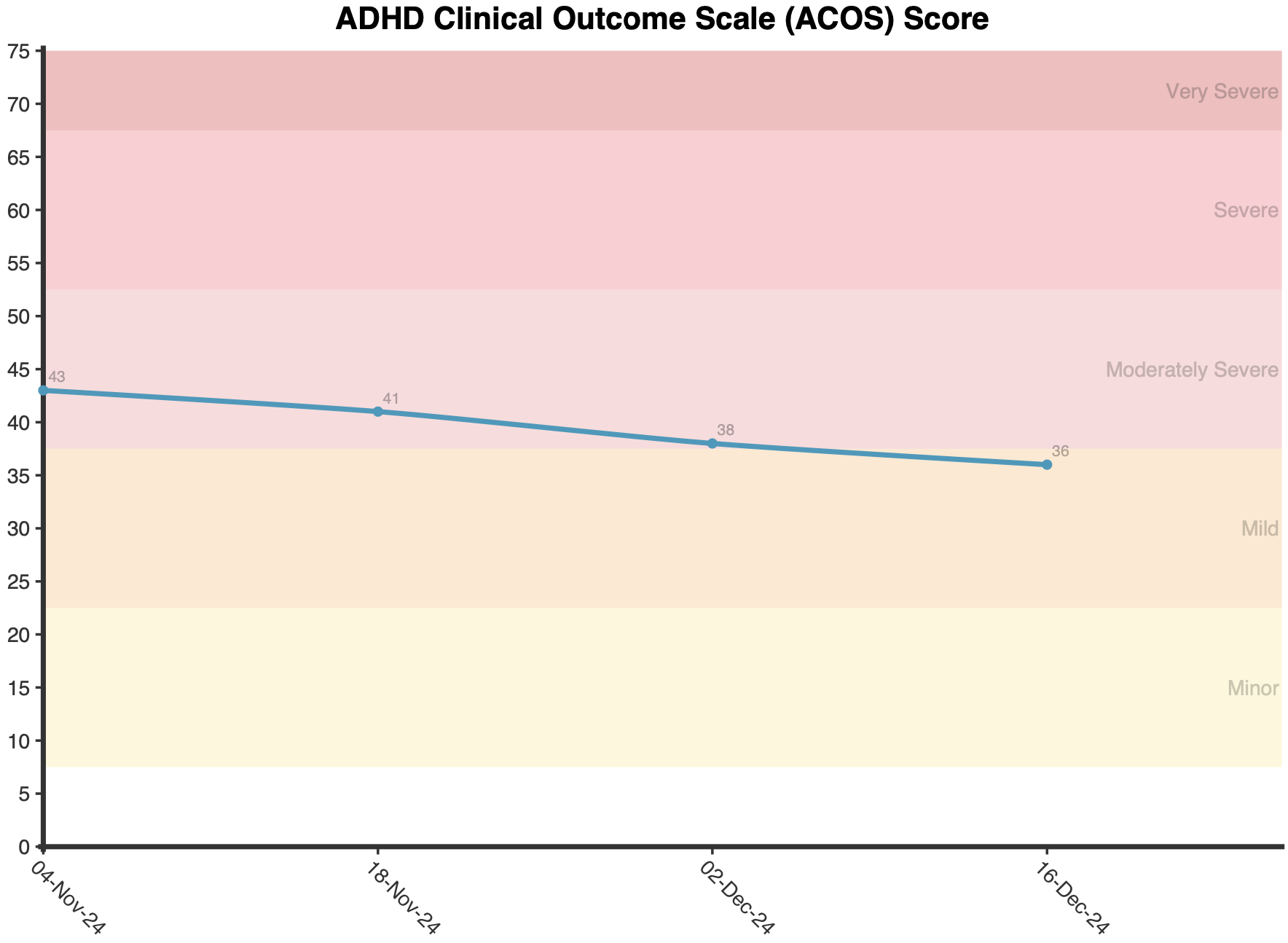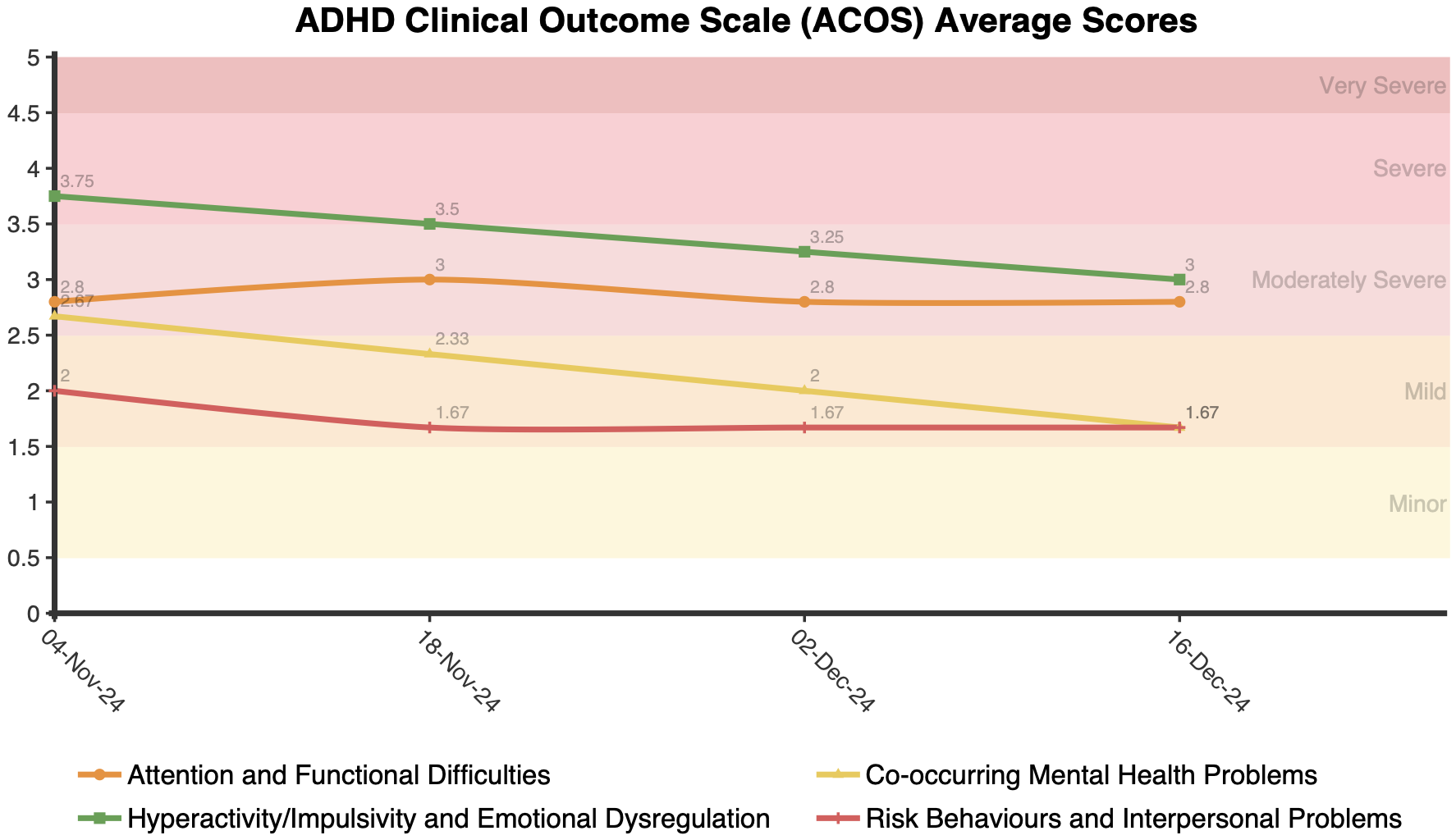The ADHD Clinical Outcome Scale (ACOS) is a 15-item routine clinical outcome measure of ADHD and related mental health problems and functional difficulties (Adamis et al., 2024).
The ADHD Clinical Outcome Scale (ACOS) is a 15-item routine clinical outcome measure designed to assess the main symptoms of ADHD as well as co-occurring mental health difficulties (e.g., anxiety and depression) and challenges in daily functioning (e.g., difficulties with work and with everyday life) (Adamis et al., 2024).
The ACOS provides a total score representing the overall severity of symptoms and problems/difficulties associated with ADHD as well as a score for each of its four subscales.
The ACOS is suitable for adults as a clinician-rated scale or self-report questionnaire (see ADHD Clinical Outcome Scale (ACOS) – Self-Report Version). Both versions provide a time-efficient means to assess and track changes in ADHD symptoms and related mental health problems and functional difficulties.
The ADHD Clinical Outcome Scale (ACOS) yields a total score between 0 and 75, with higher scores indicating a greater severity of symptoms and challenges associated with ADHD. Each item is rated on a 6-point Likert-type scale from 0 to 5 reflecting the degree to which the individual has experienced a specific problem in the past 2 weeks.
The client’s total ACOS score is expressed as a percentile based on normative data for adults with ADHD (Adamis et al., 2020; Baker et al., 2024), contextualising their score relative to the typical scores of adults with ADHD. For example, the 50th percentile represents the typical level of severity among adults with ADHD (i.e., “Moderately Severe”), while scores on the 90th percentile fall within the top 10% when compared to adults with ADHD and are considered “Severe”.

Scores are also provided for the scale’s four subscales:

The scoring approach uses qualitative descriptors to categorise ACOS scores (Baker et al., 2024). Each descriptor corresponds to a specific range of average scores reflecting the 6-point rating scale. The overall average score is calculated by dividing the total ACOS score by the number of items in the scale (i.e., 15). The average score for each subscale is calculated by dividing the subscale’s score by the number of items in the subscale. The descriptors and corresponding score ranges are as follows.


On first administration, graphs are presented showing the client’s total ACOS as a percentile and the client’s average score for each subscale. If administered more than once, longitudinal graphs are presented for the total ACOS score and the average scores for each subscale, indicating if there have been any changes in these scores over time. A meaningful change in overall severity is defined as a change of 5 or more points in the total ACOS score based on a Minimally Important Difference (MID) calculation (i.e., a 5 or more point increase indicates a significant increase; a 5 or more point decrease indicates significant reduction; and less than a 5 point change indicates no significant change).


The ADHD Clinical Outcome Scale (ACOS) was validated on a sample of 148 adults (mean age = 30.1 years, SD = 9.71 years; 45.3% male, 54.7% female) diagnosed with ADHD (Adamis et al., 2024). They had been referred to, and were recruited from, a tertiary specialist outpatient clinic for adult ADHD, and they all fulfilled diagnostic criteria for ADHD.
The sample’s mean total ACOS score for the Clinician Version was 39.42 (SD = 10.33). These data are used to convert the client’s total ACOS score to a percentile, providing useful information about the severity of their symptoms and problems/difficulties associated with ADHD relative to adults with ADHD (Baker et al., 2024).
The Clinician Version demonstrates strong psychometric properties, including evidence of concurrent validity with the WEISS Functional Impairment Rating Scale (WFIRS) and the Adult ADHD Quality of Life (AAQoL) scale as well as high internal consistency and good reliability. Exploratory factor analysis indicates that it has four factors:
Both the Clinician Version and Self-Report Version demonstrate sensitivity to changes in the overall severity of symptoms and problems/difficulties associated with ADHD, making them suitable for routine measurement of clinical outcomes in adults with ADHD.
Adamis, D., Singh, J., Coada, I., Wrigley, M., Gavin, B., & McNicholas, F. (2024). Measuring clinical outcomes in adult ADHD clinics: Psychometrics of a new scale, the adult ADHD Clinical Outcome Scale. BJPsych Open, 10(6), e180. https://doi.org/10.1192/bjo.2024.739
Adamis, D., Singh, J., Coada, I., Wrigley, M., Gavin, B., & McNicholas, F. (2024). Measuring clinical outcomes in adult ADHD clinics: Psychometrics of a new scale, the adult ADHD Clinical Outcome Scale. BJPsych Open, 10(6), e180. https://doi.org/10.1192/bjo.2024.739
Baker, S., Smyth, C., Bartholomew, E., Buchanan, B., & Hegarty, D. (2024). A Review of the Clinical Utility and Psychometric Characteristics of the ADHD Clinical Outcome Scale (ACOS) – Clinician Version: Percentile Rankings and Qualitative Descriptors.
NovoPsych’s mission is to help mental health services use psychometric science to improve client outcomes.
© 2023 Copyright – NovoPsych – All rights reserved